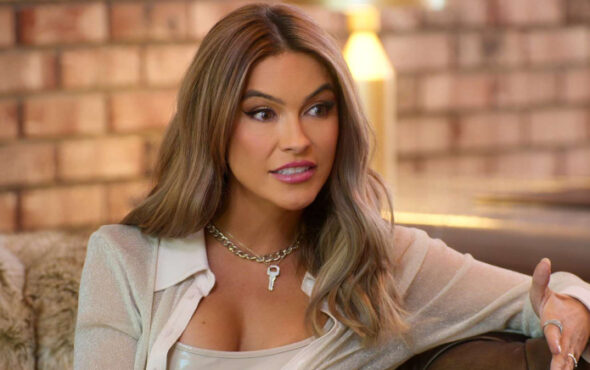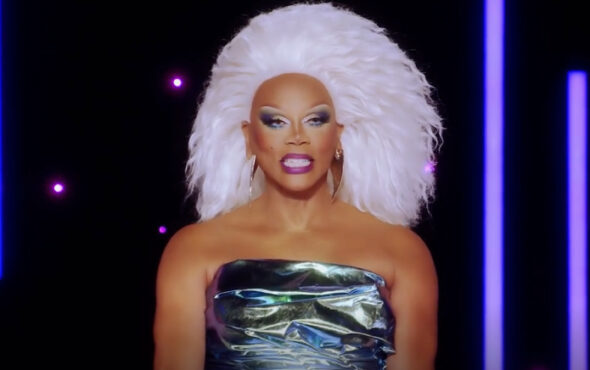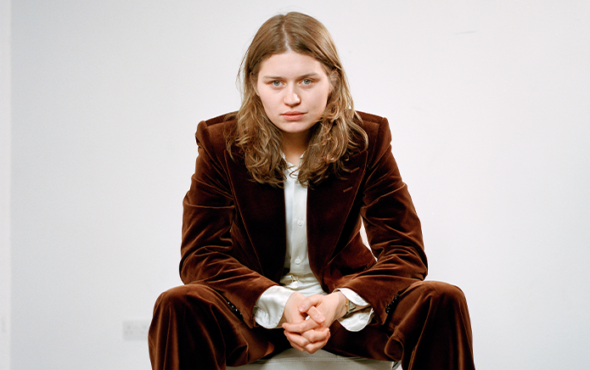
It’s no accident that Eurovision has been dubbed “the gay World Cup”. Over the years, the continent-spanning song contest has honed a reputation for camp spectacle, dazzling pop bangers and proud LGBTQ+ inclusivity. In 2018, Ireland’s representative Ryan O’Shaughnessy sang a poignant love song, Together, while two male dancers acted out an equally poignant love story. After a Chinese network censored O’Shaughnessy’s performance in the semi-finals, Eurovision bosses promptly withdrew its rights to show the grand final. The message was clear: if you’re not here for queer, you aren’t coming to the party.
Four years earlier, the contest was won by Austria’s Conchita Wurst, a glamorous bearded drag queen with seriously impressive vocal chops; her winning song Rise Like a Phoenix has since defeated countless karaoke punters. And in 1998, Israel’s Dana International claimed victory with her transcendent dance anthem, Diva. “It was the first time I had ever seen a trans woman on TV – she was so celebrated and gorgeous in her Jean Paul Gaultier feathers,” recalls Lady Lloyd, a DJ and drag queen who is preparing to host a huge Eurovision party at London’s Clapham Grand. “I do think the competition being so open, with so many diverse entrants, is a big part of why we love it so much.”
In the UK, affection for Eurovision within the LGBTQ+ community has never really faltered. But among the population at large, the contest has definitely gone through a rocky patch. Though the UK has an impressive overall record – we’ve won five times since we first entered in 1957, and come second a staggering 16 times – our recent efforts have been more flop than bop. Since Jessica Garlick finished third with Come Back in 2002, the UK has only cracked the top ten twice: Jade Ewen’s fifth place with It’s My Time in 2009, then Sam Ryder’s stunning second with Space Man last year. During the last two decades, the UK has finished bottom of the grand final in five separate contests, twice with the dreaded “nul points”.

This disappointing run of results has contributed to a negative perception of Eurovision among certain sections of the UK population. “There was a time when we took it seriously, but then something shifted,” says RuPaul’s Drag Race star Tia Kofi, who is decamping to Liverpool for this year’s contest. “Like, Katrina and the Waves won it [for us] in 1997, Imaani came second in 1998 and Jessica Garlick finished third a few years later. But after that, the acts we were sending [to Eurovision] just didn’t seem to connect with people outside of the UK. And so people here seemed to lose heart a bit. But now, thanks to Sam Ryder doing so well last year, I think that optimism is finally coming back.”
Outside of the LGBTQ+ community and Eurovision’s devoted fanbase – two groups that overlap significantly – it became common to blame the UK’s poor performance, rather vaguely, on so-called “politics”. At the same time, music snobs with heteronormative tastes tended to dismiss the contest as “tacky” or “naff”. The country that gave the world Adele, Elton John and The Beatles couldn’t possibly be falling short musically, so our failure had to be predicated on how Europe perceived us and the contest’s own inadequacy. The advent of Brexit in 2016 only fed into the reductive argument that other countries wouldn’t vote for the UK because of ongoing geopolitical tensions. Of course, this was also a convenient way of shirking responsibility and saying: “It’s not us – it’s them.”
In reality, Brexit was at most a contributing factor, never the root cause. Without wishing to be cruel, many UK acts sent to Eurovision during the past 20 years just haven’t been up to scratch. As the contest evolved to demand ever more polished song-craft and spectacular staging, the UK seemed to get left behind. Sometimes, we even misjudged the kind of camp that Eurovision voters respond to. Scooch scored a UK top five hit in 2007 with their innuendo-filled pop banger Flying the Flag (For You), but the song bombed in the grand final. Lyrics like “Would you like something to suck on for landing, sir?” were just too Blackpool end of the pier to land in Barcelona or Bratislava.
Even sending a couple of pop legends with global hits to their name didn’t help: Bonnie Tyler came 19th in 2013 with Believe in Me; then Engelbert Humperdinck finished 25th a year later with Love Will Set You Free. “It’s been a tough slog being a Eurovision fan from the UK for a long time,” admits Lady Lloyd. “I can’t remember fully getting behind a British entrant since our very best, Gina G, way back in 1996. Since then I would say our songs have ranged from passable to laughable. The show [itself] has come on so much in that period and we didn’t keep up. It’s now a slick, world-class production, and that includes the songs themselves.”

But now, thanks in no small part to the Sam Ryder effect, the UK seems to have renewed its enthusiasm for the contest. “This year feels different,” says Daniel Rosney, who reports on Eurovision for the BBC. “People have been talking about it for weeks before the contest started and I’m excited to see what 2024 and beyond will mean for the BBC and the UK in Eurovision.” The fact that Eurovision is coming to Liverpool this year has clearly piqued people’s interest, too. After all, it’s the first time in a quarter of a century that the UK has been asked to host the contest.
That honour should have fallen to Ukraine. Their entrants Kalush Orchestra won last year’s contest with Stefania, an infectious blend of hip-hop and folk that scored the highest number of tele-vote points in the contest’s history. But after bringing Eurovision to Kyiv was ruled out on security grounds due to the war with Russia, the UK agreed to step in because Ryder had finished second behind them. “It is a matter of great regret that our colleagues and friends in Ukraine are not able to host the 2023 Eurovision Song Contest,” the BBC’s Director-General, Tim Davie, said in July 2022. “The BBC is committed to making the event a true reflection of Ukrainian culture alongside showcasing the diversity of British music and creativity.”
The impact of Ryder’s runner-up finish can’t be underestimated – it was the UK’s best result since Imaani claimed the same place in 1998 with Where Are You. Essex-born Ryder was pitch-perfect at May 2022’s grand final in Turin, but he had started reigniting the UK’s Eurovision fire two months earlier when he was unveiled as our game-changing entrant. For the first time, the BBC had teamed with TaP Music, a globally renowned management company with clients including Ellie Goulding and Lana Del Rey, to find a performer who stood a real chance of reversing our fortunes.
Ryder began his Eurovision campaign with over 12 million TikTok followers – more than any other British musician. “That was like a quick check mark to say, ‘Yes, we’re taking it seriously,'” says Kofi. “Plus, he had the vocals, the stage presence and the songwriting credibility.” Ryder co-wrote Space Man, a classic-sounding pop ballad in the Elton John mold, with Grammy-winning songwriter Amy Wadge. “And I think we forget that all the pre-Eurovision concerts [that take place across Europe] and press interviews can make a huge difference,” adds Kofi. “Sam having both the appearance and personality of a golden retriever who has become human was a massive boost for the UK. It was just so obvious to everyone in the UK and other countries that he really loved Eurovision.”

Ryder was the great disruptor, but the seeds of a Eurovision revival had arguably been sown a few years earlier. In 2018, the UK’s entrant SuRie finished 24th with Storm, a life-affirming electropop song that deserved to do better. Her performance at that year’s grand final in Lisbon was crassly interrupted by a stage invader, but she bravely carried on, earning plenty of respect from peers and Eurovision viewers. “I saw first-hand how hard the BBC team were working at making positive changes to improve both the artist experience and general attitudes towards Eurovision,” SuRie says today. “I had faith we’d all get there eventually, but I didn’t realise how quickly it could happen. I’ve always been proud and grateful to have been a teenie part of the UK Eurovision family, but it truly is refreshing to see a certain shedding of the negativity, snobbery and stigma.”
Then in 2020, when a traditional contest was impossible to hold because of the Covid-19 pandemic, Eurovision’s organisers the EBU arranged a profoundly moving virtual replacement show called Eurovision: Love Shine a Light. It was a timely reminder that the contest’s fundamental purpose has always been to bring people together. “I think there’s been this myth that people in the UK don’t like Eurovision but consistently it still attracts one of the biggest audiences for the BBC each year,” Rosney says. “The thing that I’ve been fascinated by is how many young people watch the contest in the UK – the competition is massive with under 24s.”
Crucially, this demographic is one that the UK music industry really wants to target. Soon after Italy’s Måneskin won the 2021 contest with their rock stomper Zitti e buoni, two of the band’s other tracks, I Wanna Be Your Slave and Beggin’, also became global hits. Earlier that year, the Netherlands’ 2019 winning song Arcade, a haunting ballad co-written and performed by Duncan Laurence, also become an international smash after going viral on TikTok. “With Sam Ryder, Måneskin and Duncan Laurence all having bona fide hits and charting high on Apple Music, it proves that the competition is resonating with a young and engaged audience and is only growing in popularity,” says Jonathan Klein, Apple Music UK Pop Editor.

Klein also notes that a song doesn’t have to win or finish second to benefit from Eurovision’s massive global platform. Snap, a catchy folk bop by Armenia’s Rosa Linn, became a significant chart and streaming hit off the back of a 20th-place finish last year. “The artists themselves are also becoming increasingly savvy with their digital campaigns,” Klein adds. This strategy is already paying off: in March, Mae Muller became the first UK entrant in a decade to debut inside the UK Top 40 with a Eurovision song. Muller, who like Ryder was hand-picked by TaP Music, has said she is aiming for a top five finish in Liverpool with her dance-pop banger I Wrote a Song. That’s a reflection not just of its quality, but also of the renewed confidence that we’re bringing to Eurovision this year.
But hearteningly, as Eurovision has become more “credible” in the eyes of people who might previously have looked down their noses, it hasn’t lost its core inclusivity. One of the favourites to win this year is Norway’s Alessandra, whose thrilling Eurovision song Queen of Kings is partly inspired by her journey to embrace her bisexuality. “In the Eurovision community you can be exactly who you are, and it’s also a community that helps people accept who they are,” she says. “There’s a lot of icons that have come out of Eurovision that represent the LGBTQ+ community and maybe help them feel more at ease with themselves, which is so important.” Looking back at the contest’s rich queer history, from Dana International to Duncan Laurence, who is also bisexual, it’s impossible to disagree. “It should always be like this for everyone all the time,” Alessandra says, “but it’s amazing that Eurovision at least creates a safe place where everyone can be themselves 100%.”


